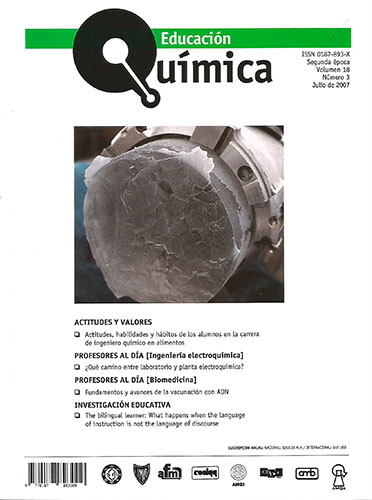The bilingual learner. What happens when the language of instruction is not the language of discourse
Contenido principal del artículo
Resumen
Those of us who teach chemistry at the college or university level in the United States are faced with the problem of conveying our course content to an increasingly number of students for whom English is a second language; a problem that has been faced by our colleagues in Latin America for generations. We therefore conducted a study designed to probe the conceptual knowledge of bilingual students who studied chemistry from English language textbooks in a classroom environment in which the language of discourse was Spanish. Interviews were done with undergraduate science majors enrolled in general chemistry at the University of Puerto Rico and with graduate students in the Department of Chemistry at Purdue University. Analysis of the interview data led to the creation of five categories: (1) use of Spanish, (2) avoidance of communication, (3) confusion of terms; (4) use of examples and new words, and (5) use of terms without mastery.
Detalles del artículo

Educación Química por Universidad Nacional Autónoma de México se distribuye bajo una Licencia Creative Commons Atribución-NoComercial-SinDerivar 4.0 Internacional.
Basada en una obra en http://www.revistas.unam.mx/index.php/req.
